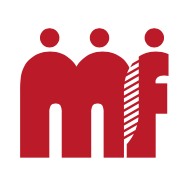The meeting, hosted by four Zambia MFC members and managed by Joan Chirwa, chairperson of the Committee, attracted 20 editors from digital and print media, representing both government and private organisations.
Edem Djokotoe, a well-respected senior journalist in the country, facilitated the roundtable and encouraged participants to share experiences on how misinformation and so-called “fake news” is affecting the profession, focusing on four core points of discussion:
- Problems in the current Zambian news media landscape, such as unprofessional conduct;
- Socio-political disruption triggered by the proliferation of disinformation and misinformation;
- Country-specific legislation in place and expected to be imposed, and its effects;
- Counter-measures adopted by news media outlets and civil society to fight back against so-called “fake news”.
While several editors recognised that misinformation represented both an operational and editorial challenge for them, they also stressed the need to take responsibility to confirm and verify stories appearing on social media. Misinformation is not only undermining news outlets when it comes to publishing “fake” stories, but the profession as a whole.
Many examples were shared to conclude that “speed kills” and that journalists needed to confront facts with sources and verification, while editors need to pay a lot of attention to detail to the news that reporters are presenting. The pressure to publish and to be “trending” on social media had to be reduced.
Another participant argued that misinformation and “fake news” were not as much of a problem as churnalism and “No News” in Zambia, with local news mainly based on press statements, pre-packaged PR materials published and broadcasted without verification or independent research.
Another topic discussed was the relationship between media owners and editors, or between business and editorial. One participant stressed that there was pressure to sell and sensationalism was taking a central stage. This vision was confronted by the facilitator, who argued that editors needed to prove media owners that money could be made by focusing on certain types of public interest stories.
On unprofessional conduct, participants raised single-source stories and professional laziness as being a big problem. Self-censorship was said to be a major concern in government-controlled media institutions. In addition, some editors denounced reporters who have aligned themselves to certain sources who paid to be covered, a “massively unprofessional” practice.
The absence of an Access to Information Law (ATI), was, according to the participants, not the main obstacle to good journalism. “There is a lot of information already which journalists are not making use of,” it was said, while journalists needed to “set a standard by practice”.
The facilitator started the discussion on potential solutions by trying to open the perspective on what constitutes news. Editors needed to be more systematic in encouraging coverage that served public interest, spoke truth to power, and questioned public decision-making, policies and public expenditure.
Attendees were asked to come up with at least three action points that they could implement to make a change in the profession based on the problems discussed. They were invited to participate in the next roundtable, due to take place in September, that will continue to analyse some of these problems in detail to propose solutions that can be implemented in the various newsrooms represented.
Joan Chirwa, with editing by Mariona Sanz




